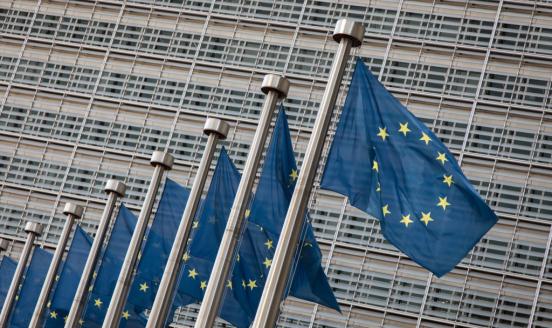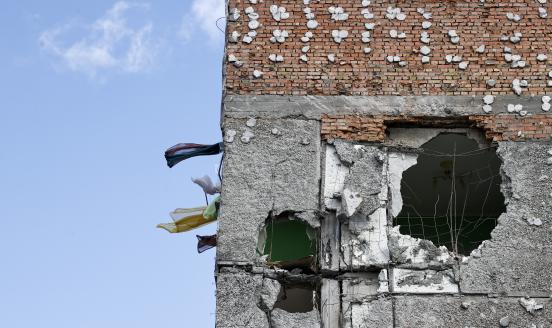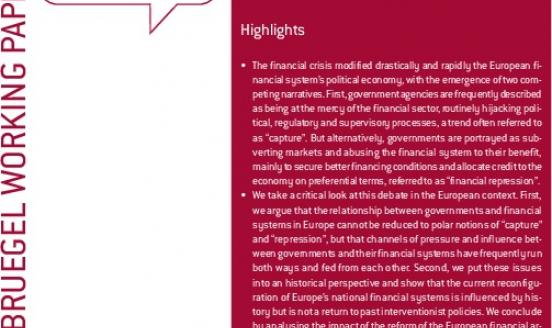The Weekender
Dear all
I have been away from civilization and I haven’t touched a Bloomberg terminal, a twitter account and a telephone for the past few days, but after a quick catch up. I feel that at least two topics are progressing in European circles.
The first one is that of a banking union, which I have alluded to in the last couple of weeks and which despite violent push back by German official will undoubtedly move forward. I’m willing to take a bet that this is another instance of German resistance before ultimately caving in.
The second is that of a "growth compact" for Europe, which Mario Draghi (before the European Parliament), Angela Merkel and Herman Von Rompuy have referred to. As I understand it, the Commission seems to preparing some elements of a strategy likely to be discussed at the European Council of June 28/29th , which will be decisive in this respect.
Meanwhile, I will focus on:
1. The fudgy IMF resources increase
2. Some highlights from the monetary policy dialogue
The fudgy IMF resources increase
The IMF’s increase in its resources appears to be fudgier than it seems and there are several sources of uncertainty.
The first and most striking one is the difficult way to track precisely who the contributors to this 430bn USD in resources really are. Indeed, the press statement by the Managing Director included a nice table from which I can only identify 363bn USD. The balance being provided by the BRIC countries with no specific amount for each and by Thailand, Indonesia and Malaysia who will contribute but need to go through “necessary domestic consultations”.
In reality, BRIC countries have held back their contribution so long as the 2010 quota reform hasn’t been ratified by the necessary quorum to make it effective. Only about 53.7% of the membership has ratified it so far while the amendment will have to be accepted by three-fifths of the IMF’s 187 member countries, having at least 85 percent of total voting power (the key laggards include Germany, the United States…)
At this pace, it is unclear that the BRIC countries will have enough assurances that this will happen before the Los Cabos G20 meeting in June or even before the annual meetings in Tokyo in October. In reality, the key swing voter in this process remains the US and it is very unlikely that the Obama administration will put this through Congress before a new House of Representatives comes in after the November 2012 elections.
So while the US didn’t contribute to this increase in resources (because it is already making FX swap lines available via the Fed says the US Treasury as a tepid excuse…), it is also de facto slowing the implementation of the 2010 quota increase, which BRIC countries see as an essential gesture of goodwill. This means that until this issue is resolved or until BRIC countries are given enough assurances that it will be, the real increase in resources of the fund is below 350bn (the UK also said it would make its pledge conditional on the 2010 reform being implemented).
The second area of uncertainty is the extent to which this increase in resources if permanent or temporary. In fact, these commitments have been made under the New Arrangement to Borrow (NAB) part of which has been temporarily expanded and will be rolled in to the permanent quota increase decided in 2010. The new increase is meant to “in addition of 2010 quota increase resource”s which will then be 736bn USD while today’s quota is 368bn USD.
All in all, it is very likely that the excess in NAB resources will not be prolonged after the quotas are increased in accordance to the 2010 reform and this will reduce the NAB by some 142bn USD. In this case, the commitment taken at the Spring meeting would add 290bn USD to the new quota post 2010 reform, and not 430bn.
All in all, somewhat ironically the IMF is using the same smokes and mirrors than the Europeans were with their firewall. More fundamentally, this highlights the important challenges lying ahead of the MD to make the IMF more effective while strengthening its governance and legitimacy.
Some highlights from the monetary policy dialogue
There was a flurry of ECB speeches this week, mostly revolving around the financial sector. I still haven’t figured out whether the ECB is simply calling on governments to move forward on the banking union front or whether it is ready to play some role in the interim.
Draghi reiterated the need for “strengthening banking resolution at European level” followed by echoing calls made by the ECB VP Constancio during the presentation of the 2011 Annual report before the ECOFIN but he also importantly
But the real focus of the monetary policy dialogue revolved around external imbalances for which a number of experts’ contributions were made (the best one being my Stefan Collignon IMHO). The papers have different focuses but they seem to converge on a few important points:
o Current account and NIIP are very poor proxies for competitiveness and should therefore not be at the heart of the Macroeconomic imbalance procedure.
o Competitiveness is largely endogeneous and cannot be limited to wage policy
o Monetary policy plays an important role in sustaining imbalances and fostering divergence in competitiveness even though the ECB claims this can only be fixed by National Governments.
o The ESRB is potentially an important vehicle to avoid the creation of imbalances but still hasn’t found the way to puts its theoretical useful into practical policy action. This is the biggest challenge lying ahead for the ECB.
Happy to have your thoughts as usual,
Best Regards,
Shahin Vallée


